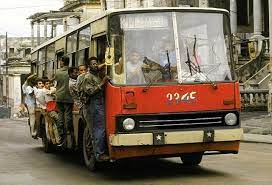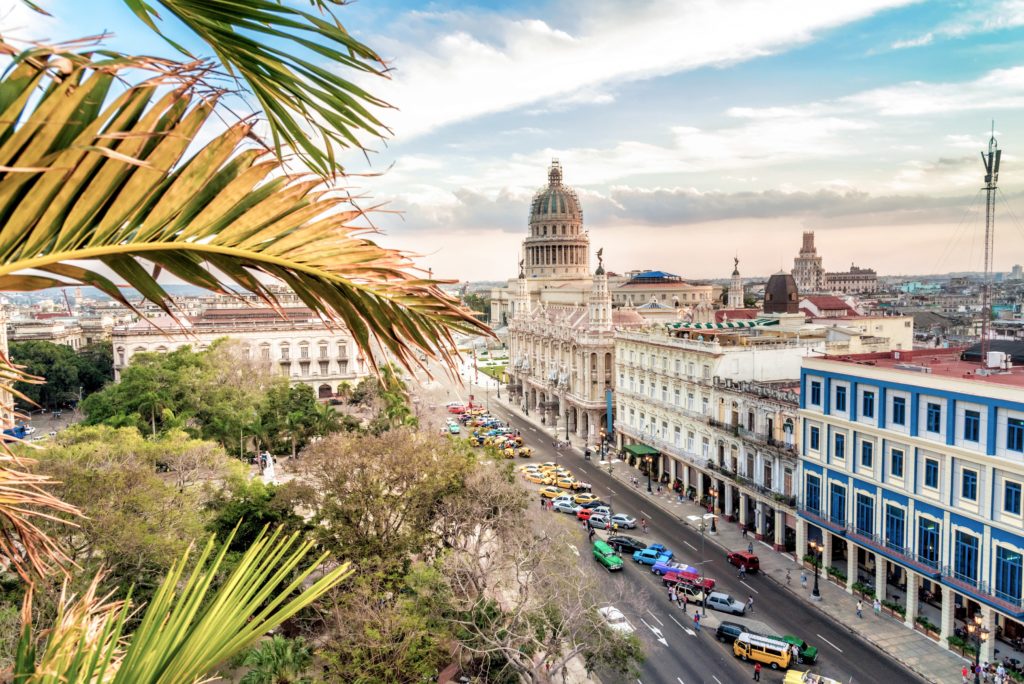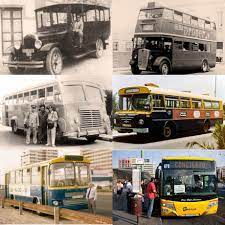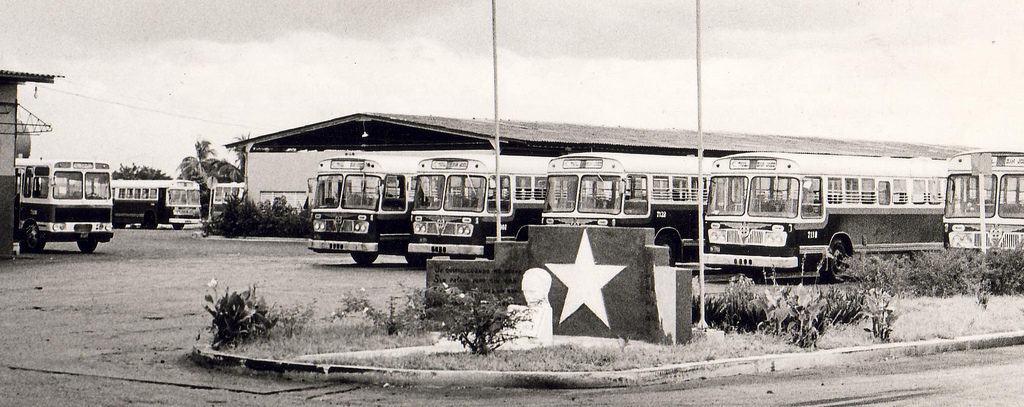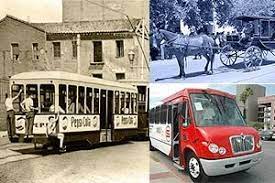VAMOS A DESCUBRÍR DE DONDE VIENE LA PALABRA CUBANA “GUAGUA”. FOTOS.
Pero quizás deberíamos comenzar diciendo que la palabra guagua se usa en la expresión de guagua y como sustantivo, equivalente en este caso a ‘bus’. La expresión de guagua, ‘de balde’, es más antigua y se registra en América y España en el siglo XIX.
El cubano Esteban Pichardo (1836) fue el primero en registrarlo, según Corominas. Por otro lado, este autor en su Diccionario Etimológico Crítico no da una fecha para la documentación de guagua ‘bus’, aunque para él el término “es cubano por supuesto”, y piensa que puede ser una adaptación del inglés. vagón, ‘carruaje’. Los estadounidenses, según nos informa, llamaron vagones de transporte militar y un automóvil mediano utilizado para el transporte gratuito de personas. Ante esto, es probable que, luego de la guerra por la independencia de Cuba (1898), la inmediata ocupación estadounidense y la posterior dependencia económica, dicho tipo de vehículos estuvieran en uso en la isla antillana.
DESCUBRIENDO EL ORIGEN DE LA PALABRA “GUAGUA” UTILIZADA EN CUBA.
La palabra “guagua”, que para los cubanos significa bus, proviene del inglés Wa & Wa Co. Inc (Washington, Walton, and Company Incorporated) que fue la primera fábrica de Estados Unidos en exportar buses a la isla. El logotipo de Wa & Wa Co. Inc. era una liebre blanca, azul y roja, los colores de la bandera estadounidense, y figuraba de manera prominente en el frente, la parte trasera y los lados de sus autobuses.
Y hablando de niños, buses y buses, te contamos que durante la época colonial el gobierno español del Perú ordenó que los niños menores de seis años fueran admitidos sin pagar nada, ¡gratis!. De ahí surgió la popular frase “viajar de guagua”, que equivalía a viajar gratis.
Durante ese tiempo se realizaron obras civiles y militares en La Habana en el Vedado.
Las obras demoraron mucho porque los trabajadores tenían que ir y venir a pie ya que ganaban poco y se dio la orden oficial de que no se les cobrara tarifa a los trabajadores de esas obras. Los dueños gritaron al cielo. Pero el oficial que acababa de llegar del Perú y estaba a cargo de las obras rápidamente los convenció: “¡Rediez!”, Ordenó, esto es un trabajo de defensa militar y ustedes tienen la obligación de ayudar al gobierno sacando a los trabajadores “de guagua”. , escuchaste bien, “¡de guagua! ”.
Pronto los habitantes de La Habana y de toda Cuba extendieron esa denominación a todo el transporte de pasajeros.
USO DE LA PALABRA “GUAGUA” EN ESPAÑA.
En cuanto a Canarias, la guagua ‘bus’ no está registrada en vocabularios de las dos primeras décadas del siglo XX. J. Reyes (1918), por ejemplo, quien registra la expresión de guagua para Tenerife, no registra guagua como término equivalente a ‘bus’. Posteriormente, Luis y Agustín Millares, que lo hacen en Léxico de Gran Canaria (1924) y Cómo hablan los canarios (1932), hablan del origen americano del término. Según ellos, los buses eran entonces “buses, hoy automóviles, que operan el servicio de transporte entre los dos puntos extremos de la población: Puerto de la Luz y el barrio San José”.
En Tenerife, según el testimonio de los ancianos, aún, en los primeros años de la década de 1940, se utilizaba la palabra guagua para designar el vehículo de transporte público, y fue durante esos años que la voz Guagua en lugar de un autobús, término que nunca se había usado, sino de un jardinero. Así, teniendo en cuenta lo anterior y, sobre todo, que los primeros lexicógrafos que registran la guagua hablan de su origen americano, parece más lógico pensar que dicha voz venía de Cuba a Canarias, como un bulto más de equipaje que, su regreso, traído por sus emigrantes.
WE ARE GOING TO DISCOVER WHERE THE CUBAN WORD “GUAGUA” COMES FROM. PHOTOS
But perhaps we should start by saying that the word guagua is used in the expression of guagua and as a noun, equivalent in this case to ‘bus’. The expression of guagua, ‘de balde’, is older and is recorded in America and Spain in the 19th century.
The Cuban Esteban Pichardo (1836) was the first to register it, according to Corominas. On the other hand, this author in his Etymological Critical Dictionary does not give a date for the documentation of guagua ‘bus’, although for him the term “is Cuban of course”, and he thinks that it may be an adaptation of the English wagon, ‘carriage’. The Americans, according to him informs us, called military transport carriages and a midsize car used for the free transport of people. Given this, it is probable that, after the war for the independence of Cuba (1898), the immediate American occupation, and the subsequent economic dependence, said type of vehicles were in use on the Antillean island.
DISCOVERING THE ORIGIN OF THE WORD “GUAGUA” USED IN CUBA.
The word “guagua,” which for Cubans means bus, comes from the English Wa & Wa Co. Inc (Washington, Walton, and Company Incorporated) which was the first United States factory to export buses to the island. The logo of Wa&Wa Co. Inc. was a white blue and red hare, colors of the American flag, and figured prominently on the front, back and sides of their buses.
And speaking of children, buses, and buses, we will tell you that during the colonial period the Spanish government of Peru ordered that children under six years of age would be admitted without paying anything, free of charge!
This is where the popular phrase “traveling by bus” arose, which was equivalent to traveling for free. During that time, civil and military works were carried out in Havana in the Vedado area.
The works took a long time because the workers had to come and go on foot since they earned little, and the official order was given that the workers of those works should not be charged fare. The owners shouted to the sky. But the officer who had recently arrived from Peru and was in charge of the works quickly convinced them: “Rediez !, he ordered, this is a military defense work and you have the obligation to help the government by taking the workers” from guagua ”, you heard correctly,“ de guagua! ”. Soon the people of Havana and all of Cuba extended that denomination to all passenger transport
USE OF THE WORD “GUAGUA” IN SPAIN.
As for the Canary Islands, guagua ‘bus’ is not recorded in vocabularies of the first two decades of the 20th century. J. Reyes (1918), for example, who registers the expression of guagua for Tenerife, does not register guagua as a term equivalent to ‘bus’. Later, Luis and Agustín Millares, who do so in Léxico de Gran Canaria (1924) and How the Canaries Speak (1932), speak of the American origin of the term. According to them, the buses were then “buses, today automobiles, that operate the transport service between the two extreme points of the population: Puerto de la Luz and the San José neighborhood.”
In Tenerife, according to the testimony of the elderly, still, in the early years of the 1940s, the guagua word was used to designate the public transport vehicle, and it was during those years that the Guagua voice instead of a bus, a term that had never been used, but of a gardener. Thus, taking into account the above and, above all, that the first lexicographers who register guagua speak of its American origin, it seems more logical to think that said voice came from Cuba to the Canary Islands, as one more item of luggage that, their return, they brought by their emigrants.
Agencies/ Wiki/ TransladingCuba/ Extractos/ Excerpts/ Internet Photos/ Arnoldo Varona/ www.TheCubanHistory.com
THE CUBAN HISTORY, HOLLYWOOD.




